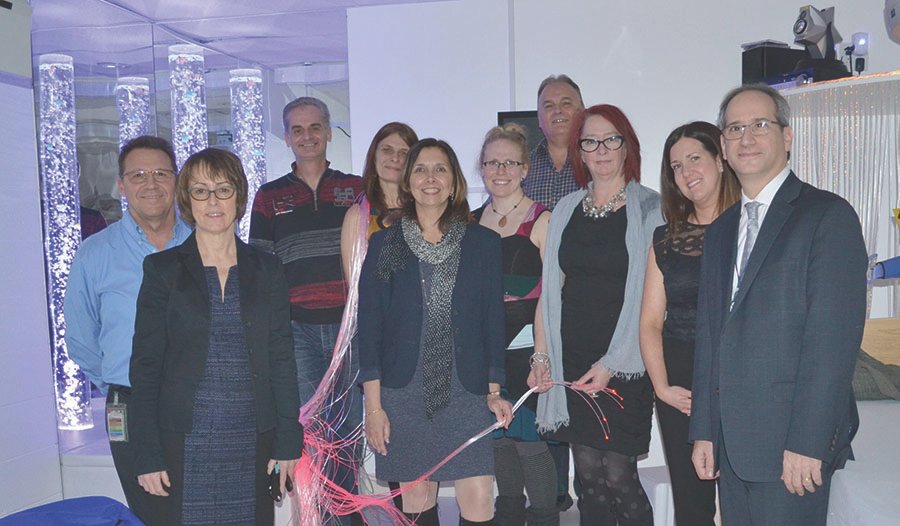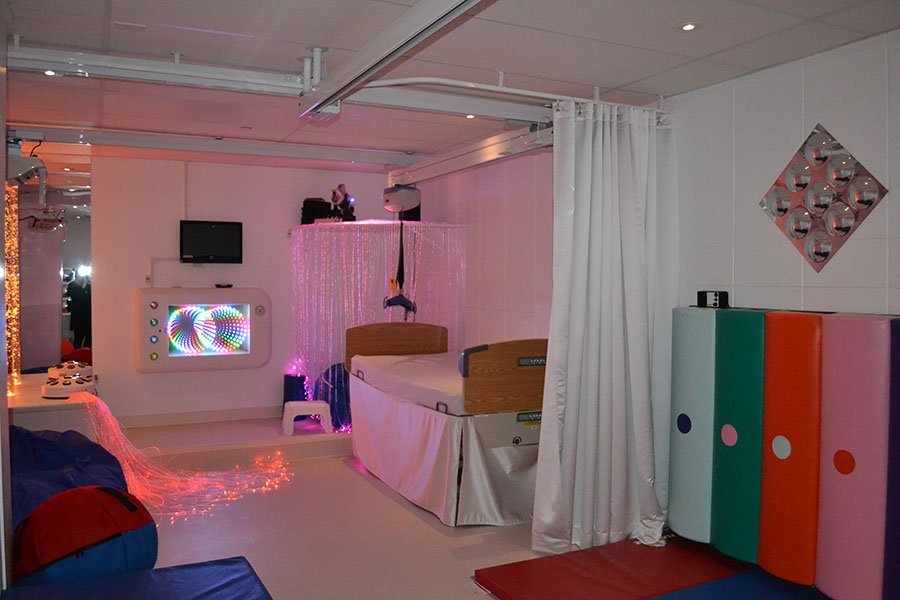
(TLN)
For the 30th edition of the Quebec Week for Intellectual Disabilities, the CISSS de Laval proceeded recently with the official opening of its new Snoezelen-based multisensory room at the Résidence Louise-Vachon.
Developed in the Netherlands during the 1970s, the Snoezelen approach involves sensorial and therapeutic experiences meant for various types of clientele.
Over the last few months, a team at the Résidence Louise-Vachon worked to put into place this room which will allow users with intellectual disabilities or with an autism spectrum disorder to take part in new activities determined by a team of clinical specialists.
Users can explore
The activities will stimulate sensations involving the senses, including hearing, eyesight, touch, smell and motor control. The new room is equipped with fiber optics to project videos and still images as required. Users will also be able to explore at their own pace various other kinds of sensations leading to physical and mental relaxation.
“We have noticed that the users who come to this new room see a reduction in their anxieties as well as a higher level of awareness,” says Gary Stoopler, director of programs for intellectual disabilities and autism spectrum disorders at CISSS de Laval. “These are just some of the numerous benefits from this approach that reinforce the therapeutic link between users and their various interveners.”

Special training in approach
In order to master this therapeutic approach, 15 interveners from the Centre for Readaptation in Intellectual Disabilties and Development Problems at CISSS de Laval have received special training in this approach. Over the coming months, training will continue so that the employees develop familiarity for the method.
“With this new technique, the interveners will be able to add goals to individualized intervention plans for each user,” says Nicole Lanteigne, head of health and assistance services at the Résidence Louise-Vachon. “This will encourage the development of users and will furnish them at the same time with a better quality of life.”



